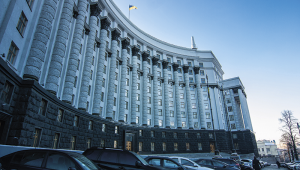Some of the world’s biggest economies, such as the US and China, have made little progress in strengthening the rules around beneficial ownership ‒ a mechanism often used to conceal company ownership.
Transparency International managing director Cobus de Swardt said: “Pick any major corruption scandal in recent history ‒ Petrobas, FIFA, Ukraine’s Victor Yanukovych ‒ and you will find a secret company was used to pay a bribe, shift and hide stolen money, or buy luxury real estate in places like London and New York.
“It makes no sense that this gaping loophole for the corrupt remains open. What is stopping G20 countries from actively shutting down this vital avenue to corruption, despite promises to do so?”
The claims came ahead of this year’s G20 summit in Antalya in Turkey. At last year’s meeting in Brisbane, leaders committed to ensuring financial transparency by the delivery of a set of “high-level principles” to dismantle the legal structures that facilitate corrupt practices such as anonymous companies, beneficial owners, trusts and other legal entities.
However, Transparency International’s recent report, titled Just for Show? Reviewing G20 promises on Beneficial Ownership, found that only the UK is actively working to strengthen its anti-corruption activities.
The NGO said that some G20 nations, namely Brazil and South Africa, have fallen behind on even “the most basic aspects” of the commitments ‒ adopting a legal definition of beneficial ownership.
Aside from India and the UK, the report found that G20 governments still need to make it a requirement for companies to record and keep up-to-date information about the real person who owns or controls them, so they can be held accountable for any illegal activities.
In eight of the G20 countries ‒ including those hosting major financial centres such as New York, Tokyo, Shanghai and Sydney ‒ banks can still complete transactions even if they can’t establish the identity of the real person behind the money.
And in seven G20 countries, real estate agents also do not need to identify the person behind the sales and purchase of property. Transparency International said billions of dollars worth of property in cities like London and New York have secret owners, who could be using the opportunity to hide stolen money.
Even the UK, which the report largely leaves out of accusations of failure, is undermined by its weak performance in British Overseas Territories and Crown Dependencies. The report said this threatened to undercut the UK’s implementation of the G20 principles entirely.
Swardt said: “The world looks to the G20 for leadership on political, economic and other important issues of the day. To avoid looking little more than a talk shop, they must keep their promises ‒ including on tackling corruption.”












